- Home
- Patrick Robinson
Nimitz Class am-1 Page 16
Nimitz Class am-1 Read online
Page 16
“Well, if one of ’em left, how come we did not see it immediately, and then track it?”
“Good question. The fact is no one did see it leave. No one has seen it at all.”
“Do you think it could have just crept out without anyone knowing, and then blown up the carrier?”
“Search me. The experts say not a chance. But it’s still missing.”
“If you ask me, that makes the Iranians doubly suspicious. They could have just moved the submarine to throw us off the scent of the one they hired in the Black Sea — the real culprit.”
“Possibly. But Admiral Morgan’s men believe it would have been impossible for them to have got the Kilo out through the Strait of Hormuz without us knowing. We have the KH-11 satellite camera trained on that stretch of water night and day. Every day. I think they just moved it or hid it to confuse us. Either way they are beginning right now to look very, very guilty.”
“No doubt about that.”
“Go see your mom, Billy. Then hit the gas pedal for Scotland. Let’s get busy.”
They walked around to the front of the house, climbed into the rear of the Navy staff car, and headed north up the parkway to the Pentagon. Admiral Dunsmore jumped out in the garage and was met by a Marine guard, who escorted him into the private elevator and to General Paul’s office.
The car swung around with a squeal of tires and headed to the airport. There Bill Baldridge grabbed his bag from the front seat and went to find his ticket. He had only an hour to wait before boarding, and he slept most of the way to the great sprawling city on the Missouri River which straddles two separate states. He would need to shuttle down to Wichita and then pick up a small local Beechcraft to Great Bend. Bill called his brother Ray from the airport, asked him to come pick him up, a journey of about thirty-eight miles.
Kansas City International Airport is positioned in the top right-hand corner of the state, to the north of the river. It never felt much like home to Bill Baldridge. In fact he never felt anywhere near home until he buckled up his seat belt in the aircraft on the flight southwest to Wichita and heard that old down-home accent again. Today, flying through the clear cobalt-blue sky of the Midwestern summer he could see the great billiard table of his home state, millions of acres of wheat and the wide prairies of bluestem grass, the finest cattle-rearing pasture on this earth.
Because he would not have presumed to have breakfast with the Chief of Naval Operations without wearing full uniform, he was still dressed as an officer in the U.S. Navy.
The deeper he flew into the heartland, the more he yearned for his high-quilted boots, spurs, and chaps, and for the feel of his hard bay workhorse between his knees, his long whip and his Stetson. In the next ten minutes he knew he would see one of the great geographic phenomena in the USA — the sudden rise from the plains of a series of rounded dome-shaped hills. To a stranger looking down they looked like some ancient Indian burial ground, like the Valley of the Kings up the Nile from Cairo.
These were the strange Flint Hills, rising one behind the other in a gently sculpted symmetry, now in July a deep green, but out in the distance, pushing against the horizon, a misty blue, sometimes almost purple. From the air they seem desolate, a place where a man could find true solitude.
They were flying due east of Wichita now, over the interstate highway east to the Missouri border at the old Cavalry outpost, Fort Scott. Below, Bill knew, was the huge sprawling acreage of Spring Creek Ranch, owned by the Koch family, the principal employers in the state of Kansas — Koch Industries, of Wichita, the greatest privately owned oil-pipeline empire in the world.
Old Fred Koch and Tom Baldridge had been quite good friends back in the 1960s, but Fred died young, and Bill Baldridge knew a bunch of brothers owned the company now. The youngest, and, Jack always said, the nicest, and the cleverest, was Bill Koch, who won the America’s Cup off San Diego in 1992. Jack had gone out to watch as a guest of his fellow Kansan a couple of times while he was in port. Jack had been saying for several years that Bill Koch should run for governor.
They were finally descending, dropping down into Wichita Mid-Continent Airport, which coped on a daily basis with an armada of private jets bearing executives to the big oil and aircraft-building corporations.
Nonetheless, when Bill stepped out into the hot plains afternoon, the air, as ever, tasted better. Three times on his stroll to the baggage area he was interrupted by people who recognized him and wanted to offer their condolences. Lieutenant Commander Baldridge was gracious and polite to them all, and as he picked up his bag, he heard another familiar voice: “Hey, Billy, comin’ on up to Great Bend with me, there’s just three of us. They told me you’d probably show up.” Out here, matters like short-hop air flights were strictly routine. The big Kansan families never even bothered with tickets. A highly reasonable monthly bill just came in to the Baldridge spread, and the ranch office paid it.
And now Rick Varner, the pilot, picked up the Naval officer’s bag and began walking out to the Beechcraft. “I ran your ma out to Tribune yesterday,” he said. “There’s a little airstrip just to the southeast of the town. She wanted to visit poor old Jethro Carson. She said Zack’s death has broken the old boy apart. Hasn’t uttered but one word since he heard the admiral was gone. Apparently the whole of Greeley County is in mourning. Jethro was pretty old, but he was in great health till this. Your ma thinks it might finish him. She says you can get a broken heart at any age.”
“Guess so, Rick. I’m not feeling that great myself. Mom seem okay?”
“Stranger mighta thought she was. But I’ve known Mrs. Baldridge a lotta years. She was putting on a brave face. I never saw so many people so upset as they were last Tuesday when we heard about the carrier, and that Jack was on board. There were four of our office people in tears. My goddamned copilot was in tears. I was in tears. We did not see much of Jack recently — but it just seemed so real to all of us, you know, to have known someone for so long, and suddenly he was gone.”
“He’s gonna leave a huge gap in our family, that’s for sure.”
They rode in silence for the rest of the twenty-five-minute trip across the central plains before Rick finally dropped down and flew low over the huge bend in the wide, jade-colored Arkansas River. This is the famous swerve which gave birth to the city of Great Bend, right on the north bank, where the flow of the water switches from its northeast course to southeast across the low fertile plains to Wichita. After that it still runs wide and onward, almost due south into Oklahoma. The Arkansas is one of the great American rivers, flowing out of the Colorado Rockies for fifteen hundred miles across the western high plains of Kansas, then through the lush lowlands of southwest Kansas, right across the Oklahoma panhandle, into Arkansas. It hits the Mississippi fifty miles shy of the Louisiana border.
Despite its massive interstate journey, all Kansans thought of it as their private river and anything it did before or after leaving the state was regarded as strictly irrelevant. Bill Baldridge considered that river his home waters.
They put down at Great Bend’s small commercial airfield, where the lean, tanned figure of Ray Baldridge stood tall in a short-sleeved cotton shirt, light trousers, and a Stetson, waiting to welcome his younger brother home. “Good to see you, kid,” he smiled, but the loss of Jack was too overpowering and they walked out to the Cherokee pickup in silence.
Ray broke the ice. “Mom don’t seem too bad, but I guess she’s fighting it,” he said. “So’m I, really. I just can’t believe we’ll never see him again.”
“I don’t think I’m ever gonna get used to that.”
“Well, the ranch is running fine. Making a ton of money this year, profits still going into the trust Dad set up. I’m just hop in’ you’ll leave the Navy soon and come out here and take it all over. I’m fine running the herds, overseeing the breeding, hiring and firing the guys, making it all happen. But I guess we all thought Jack’d take over the heavy-duty stuff, buying and selling land, budgeting for r
epairs, investing in new herds, watching the markets, deciding when to sell and all. Ain’t no one can do that for us really, ’cept for a member of the family. We got accountants to look like they’re doing it but not like it was you or Dad or Jack. I just wanna pure-bred Baldridge out here in charge.”
“Yeah, Ray. I know. I just have one last job I’m gonna do in the Navy, then I’m resigning, mainly because I’m not going to be promoted any higher. I’d rather get out than stay a lieutenant commander for the rest of my career. I’d planned on coming home anyway this year or next. But, shit, I wasn’t really counting on taking over the whole operation. That’s one hell of a commitment. That’s a lifetime.”
“You got it, Billy. But it’s your lifetime…and mine.”
By this time, they had crossed the Pawnee County line, driving westward across the old Indian lands along a flat, near-deserted prairie road as straight as a gun barrel. To the left and to the right the landscape was identical, miles and miles of uncluttered farmland, sometimes wheat, less often ripening corn, and, much more often, great swathes of prairie, endless grass, waving in the ever-present whisper of the south wind.
This was the Big Country, the land of Wyatt Earp, the Dalton Brothers, Bat Masterson, Wild Bill Hickok, the Comanches, the Pawnee and the native Kanza, the plains Indians, who once rode out here behind herds of buffalo twenty-five miles long.
The Baldridge Ranch, with its distinctive B/B brand, set in wrought iron on the high gateway to the house, was actually across the Pawnee border in Hodgeman County, built in a rich alluvial plain in the fork where the Pawnee River and Buckner Creek finally converge before meandering on down to the broad Arkansas. But the Baldridge land begins before the border, straddling two counties, and Bill could see part of the white-faced family herds of Herefords long before they came in sight of his mother’s house.
He cast an expert eye over them. “Looking good, Ray,” he said. “A real credit to you. Like always.”
“Thanks, little brother. We’ve been pretty lucky this year. Lotta rain in the late spring, brought the grass on — you know the story, the better the pasture, the less they wander, and the more weight they put on.”
“Yup,” said Bill. But then he fell silent again. And once more the vision of the sinister black Russian Kilo stood stark before his mind’s eye, as it had done just about every two hours for the past five days. He knew exactly what it looked like, just as he knew the minutest detail of the conformation of a Hereford steer. Right now he seemed to occupy two worlds, each one several million light-years from the other — the soft winds and homely cattle out here, grazing on what a Kansan poet once described as the Lawns of God. And far away, the villainous, menacing, malevolent arena of international, militarized terrorism, into the black heart of which he must journey before the next week was done.
Ray drove the Cherokee up to the door of the big white clapboard house, with its long Doric columns, surrounded by great maple trees planted by generations of Baldridges.
Inside, across the high-timbered hall and through the arched doorway to the sunlit living room, sat the tall, white-haired matriarch of the family, Emily Baldridge, aged seventy-five. She was nursing a cup of English tea, a copy of the state magazine, Kansas, and Bill guessed, a broken heart.
She rose as he walked through the door, smiled and hugged her youngest son. “And how’s my Navy officer today?” she said, holding him appreciatively at arm’s length.
“Pretty good, Mom,” he said, secretly marveling at her control, so soon after the shocking death of the male head of the family. “My own news is varied. I’ve been appointed to an investigation into the accident on the carrier, and I’ve pretty well made up my mind I’m resigning from the Navy right after it’s over.
“Ray and I had a chat on the way out here. I’m coming home within the year.”
“Oh, bless you, Billy. I so hoped you would. It’s too much for Ray and me. I was always worried it may have been years before Jack could come back but now he’s not coming back and I was beginning to consider reducing the land and livestock. It’s too big for us.”
“I’d say it’s a good thing neither Dad nor Jack heard you say that, both of ’em hated selling anything. I don’t like it much either, so let’s not do anything. And, Mom, you were right. It would have been a long time before Jack got back home. They were going to make him an admiral for sure. He’d have ended up right at the top. In the Pentagon. He was the best potential battle commander I ever met. Everyone knows that. Scott always said he was just keeping the ole CNO’s chair warm for Captain Baldridge. And he didn’t mean me!”
“Ah, my darling, but he couldn’t ride a horse like you, could he?”
“No, ma’am, that he couldn’t. But he coulda taken on the Russian fleet. Coupla times I heard him say he’d a been real happy to do just that. Wasn’t he something?”
Bill knew he had to change the subject quickly. But there was something compulsive about the subject of Jack Baldridge. Bill gazed at his mother with profound affection, but he was too late. She was trying to tell him that Margaret and her two granddaughters were arriving from San Diego next week. But there were tears streaming down her face — hopeless, helpless, desolate tears for her lost, beloved second son, the only one of the three who looked just like his father. The one she had loved most of all.
“I’ll get him, Mom,” he blurted, incomprehensibly to her. “You can put the ranch on that. I’ll get him.”
But Emily Baldridge was too preoccupied regaining her own self-control to worry about Bill’s. She gratefully accepted the big white linen handkerchief he offered, and fled toward the door. “I’ll just go and rejoin civilization,” she called. “Go and have a rest. Let’s all meet on the veranda at seven.”
Bill stood and watched her go with huge sadness. She was such a handsome woman, still clinging to her starchy East Coast manners, still aware of the old taboo about showing emotion, still bearing the stamp of Wellesley College, plain as if someone had put a W* branding iron to her just before graduation. She and Tom Baldridge had seemed a slightly out-of-step couple to strangers, she so much more polished than the broad-shouldered Kansan rancher.
Bill followed his mother up the long oak staircase, through the arch set with the big longhorns and Indian regalia. He wandered along to his old room, the heavy, brightly covered Sioux blanket slung over the bed, the crossed Comanche lances beside the mirror, the big framed sepia picture of Crazy Horse gazing sternly across the room. It was the headquarters of a schoolboy scout, a veteran of a hundred battles in this historic plains Indian country. At the bottom of the bed were two pairs of cowboy boots, one with spurs. Inside the big pine wardrobe there were four Stetsons, and a selection of cowboy shirts and trousers, befitting the youngest son of one of the big ranchers in the area.
Ten minutes later he strode out over the veranda, dressed now in the only clothes in which he felt truly at home, the lightweight white Stetson pushed back a bit, just enough to take the glare off his eyes. Tonight he would ride alone for a while, heading west into the gigantic Kansan sunset. Bill’s spurs clanked lightly as he headed out to the stables.
He lingered for a while talking to Freddie, the big bay horse, which only he and Ray ever rode. Then he hoisted the big Western saddle, with its Indian markings and wide saddle horn, up and across the horse’s back. He tightened the girths, moving easily around the quarters, gently smoothing Freddie’s tail, unafraid of the hind hooves which could launch a man with the wrong touch twenty yards through the air.
When Bill rode out past the cattle pens, tipping his hat toward a couple of ranch hands mending a fence, no one would have guessed he had ever left this place.
“Hey, Billy, welcome back…terrible ’bout Jack. Everyone’s very sad out here right now.”
Bill Baldridge rode slowly westward, out between the two rivers. Forty miles to the southwest lay Dodge City, their nearest sizable town — his mom was a trustee of the museum there. Dead ahead lay more or less nothi
ng, mile after mile of prairie, the wind making patterns on the bluestem. In this late afternoon light, the pasture seemed greenish gold in color. But as the south wind gusted the grasses bent before its gentle force and bluestems showed in long patches like the ripples on water. Bill stared, watching the blue patterns as he once had as a boy, dreaming of an ocean he had never seen.
Freddie’s hooves were almost silent on the prairie, so deep and lush was the grassland. The only sounds were the occasional soft crushing of the taller stalks, and the endless chirping of the cicadas. Glancing down, Bill could see bare patches where all of the grass and wildflowers appeared to have been the victims of a giant lawn mower, and the wind blew no patterns here.
The great Baldridge herds had passed by very recently. So recently none of the wildflowers had shot new blooms. Bill knew the cattle must be close, but he had to get back to meet his mother and Ray. Another mile or so and he must turn around, maybe let Freddie have a gallop home, blow him out a little, keep him young.
They kept going for a bit, now at a light canter through this lonely American outback, which renders its natives lifetime prisoners of a vast and silent beauty.
Bill gazed out in front of him, to a bank of high cloud building on the horizon. He squinted his eyes into the lowering sun, which was already becoming the color of spent fire. He could not see the herds yet, and he turned his horse around and began the ride home, with the last of the day’s warmth now upon his back. A mile from the ranch, riding now close to the creek where the ground was a little softer, he spurred Freddie on, urging him to gallop.
Up ahead he could see two cowboys rounding up the last of a half-dozen stray steers, down by the water. They nearly had them bunched now, riding with one man to the rear and one out on the left. Two steers kept wheeling away back toward the river. Instinctively Bill Baldridge urged Freddie forward, drawing his long whip from the left side of his saddle. He came up on the right, on an easy stride, just outside the leading runaway. The famous Kansan brand, B/B, was clear on their hides.

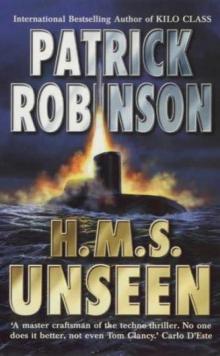 H.M.S. Unseen am-3
H.M.S. Unseen am-3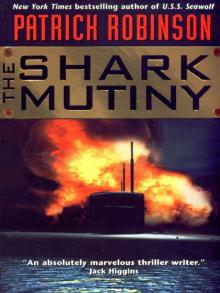 The Shark Mutiny (2001)
The Shark Mutiny (2001)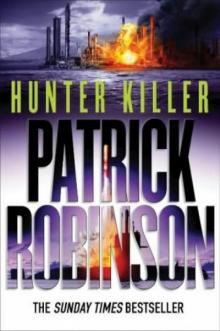 Hunter Killer am-8
Hunter Killer am-8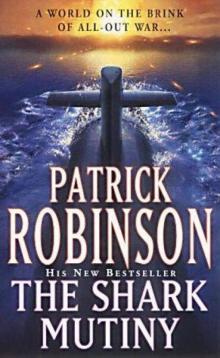 The Shark Mutiny am-5
The Shark Mutiny am-5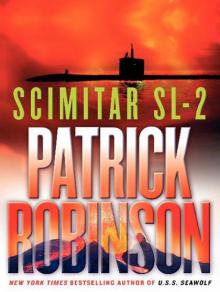 Scimitar SL-2
Scimitar SL-2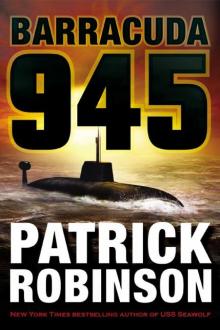 Barracuda 945 am-6
Barracuda 945 am-6 Hunter Killer
Hunter Killer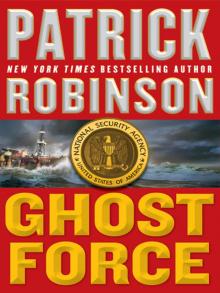 Ghost Force
Ghost Force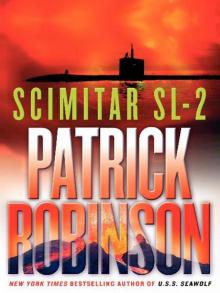 Scimitar SL-2 (2004)
Scimitar SL-2 (2004)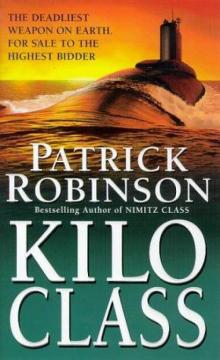 Kilo Class am-2
Kilo Class am-2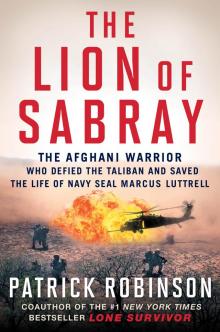 The Lion of Sabray
The Lion of Sabray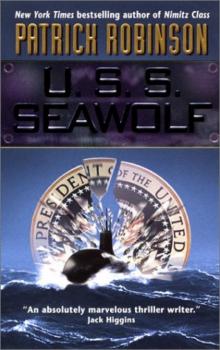 U.S.S. Seawolf am-4
U.S.S. Seawolf am-4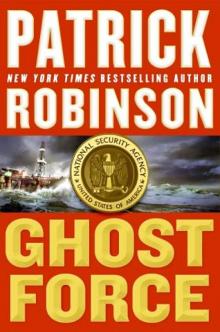 Ghost Force am-9
Ghost Force am-9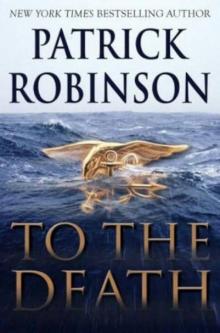 To the Death am-10
To the Death am-10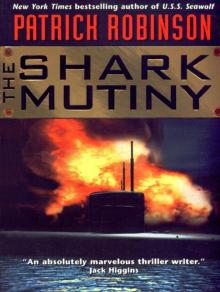 The Shark Mutiny
The Shark Mutiny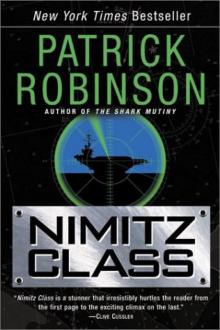 Nimitz Class am-1
Nimitz Class am-1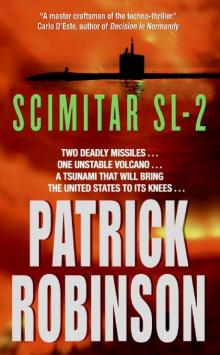 Scimitar SL-2 am-7
Scimitar SL-2 am-7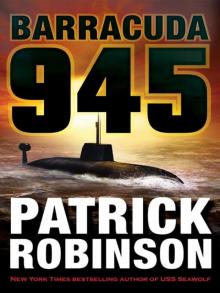 Barracuda 945
Barracuda 945 Intercept
Intercept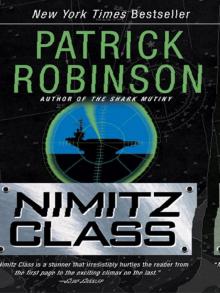 Nimitz Class (1997)
Nimitz Class (1997)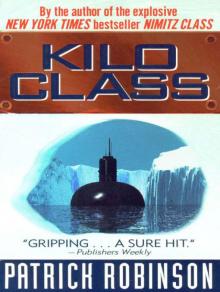 Kilo Class
Kilo Class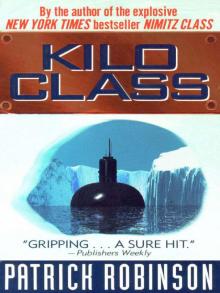 Kilo Class (1998)
Kilo Class (1998) Diamondhead
Diamondhead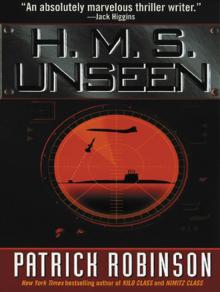 H.M.S. Unseen
H.M.S. Unseen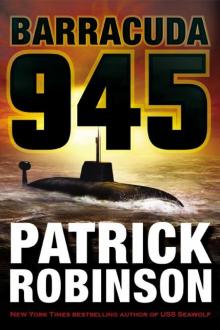 Barracuda 945 (2003)
Barracuda 945 (2003)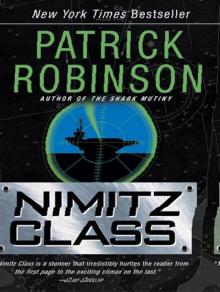 Nimitz Class
Nimitz Class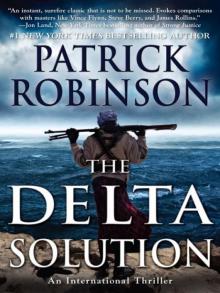 The Delta Solution
The Delta Solution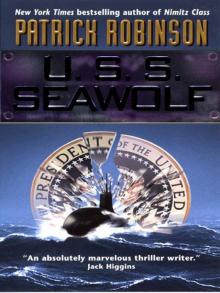 U.S.S. Seawolf
U.S.S. Seawolf